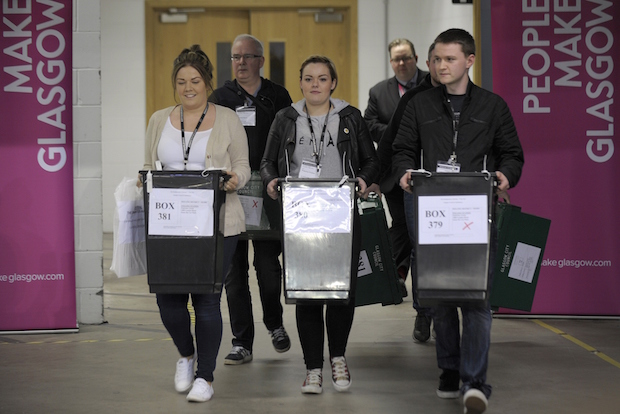The government will today try to overturn a Lords’ vote that introduces votes at 16 for the EU Referendum Bill. Under other circumstances, the Conservatives could find this difficult, as there is a group of Tory MPs roughly the same size as the government’s majority who support the principle, but who do not want to rebel and cause trouble on their flagship legislation enabling the referendum they spent the election boasting about. Former minister Damian Green will abstain on the legislation, I understand, as he supports the principle.
The government has invoked financial privilege on this matter, arguing that the change will cost £6 million. Speaker Bercow agrees, which means the Commons can overrule the Lords on this matter. But those MPs in favour of the principle of lowering the voting age are unconvinced of this argument at least: they point out that those eligible to vote in a referendum that will be held by 2017 will be eligible to vote in the general election in 2020, and will therefore need to register to vote anyway. This, they argue, simply means that the cost of their registration is being pushed forward by a few years.
More widely, the Tories are working out how best to curb the power of the troublesome Lords, and are reported to be considering stripping peers of their veto over statutory instruments. Cameron’s government uses these a lot, but it’s not quite fair to say that it is increasing the use of them dramatically: the table below on instruments laid before the Commons shows that governments have been using these pieces of secondary legislation which are subject to far less scrutiny a great deal for a good while.

That’s not to say that Cameron is planning to do anything that will cut down on the use of secondary legislation to whisk big changes past parliamentarians without many of them noticing. He may well even be planning a dramatic increase in them from now on as they make it easier to achieve what you want without pesky long debates and several stages of scrutiny. But it’s clear that statutory instruments have been a useful menace for a number of years and for a number of governments, not just the current one.







Comments